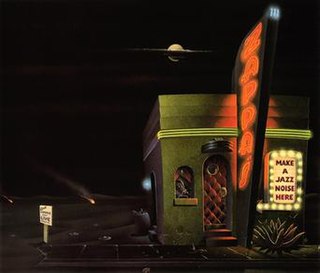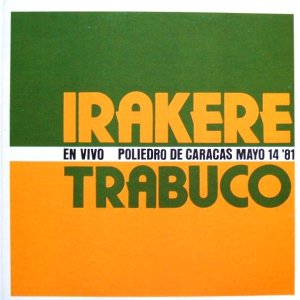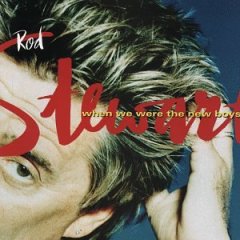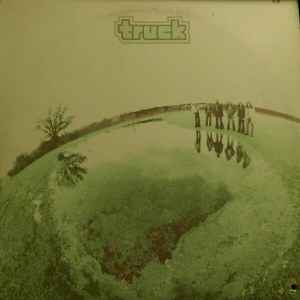Related Research Articles

Blood, Sweat & Tears is an American jazz rock music group founded in New York City in 1967, noted for a combination of brass with rock instrumentation. BS&T has gone through numerous iterations with varying personnel and has encompassed a wide range of musical styles. Their sound has merged rock, pop and R&B/soul music with big band jazz.

Kamakiriad is the second solo album by Steely Dan artist Donald Fagen, released in 1993. It was his first collaboration with Steely Dan partner Walter Becker since 1986, on Rosie Vela's album Zazu. Becker played guitar and bass and produced the album. The album is a futuristic, optimistic eight-song cycle about the journey of the narrator in his high-tech car, the Kamakiri. It was nominated for a Grammy Award for Album of the Year 1994.

Both Sides Now is a concept album and studio album by Canadian singer-songwriter Joni Mitchell that was released in 2000. It is her 17th studio album. The album won two Grammy Awards in 2001 for Best Traditional Pop Vocal Album and Best Instrumental Arrangement Accompanying Vocalist(s) for the song "Both Sides Now" and a Juno Award for Vocal Jazz Album of the Year.

Instant Replay is the seventh studio album by the American pop rock band the Monkees, released in 1969 by Colgems Records. Issued 11 months after the cancellation of the group's NBC television series, it is also the first album released after Peter Tork left the group and the only album of the original nine studio albums that does not include any songs featured in the TV show.

Make a Jazz Noise Here is a live double album by Frank Zappa. It was first released in June 1991, and was the third Zappa album to be compiled from recordings from his 1988 world tour, following Broadway the Hard Way (1988) and The Best Band You Never Heard in Your Life (1991). The album's cover art was made by Larry Grossman.

Irakere & Trabuco - En Vivo, Poliedro de Caracas, Mayo 14' 81 is a Vinyl-LP live album released in 1982.

Storyville is Robbie Robertson's second solo album. It is focused on the famous jazz homeland section of New Orleans and on that part of the South in general. He contributed one song to Wim Wenders' soundtrack to his 1991 film, Until the End of the World.
Cold Blood is a long-standing R&B horn funk band founded by Larry Field in 1968, and was originally based in the East Bay region of the San Francisco Bay Area. The band has also performed and recorded under the name Lydia Pense and Cold Blood, due to the popularity of their lead singer, Lydia Pense .

When We Were the New Boys is the eighteenth studio album by Rod Stewart released on 29 May 1998. It was Stewart's last studio album to be released by Warner Bros. Records. It produced the singles "Ooh La La", "Rocks", and "When We Were the New Boys".
Dr. Music was a Toronto jazz group founded in 1969 by producer, arranger and performer Doug Riley. The band recorded three albums and toured across Canada. The personnel of the band changed throughout its history, with Riley remaining at the core of the group.

El Trabuco Venezolano - Vol. III is a vinyl LP by Venezuelan musician Alberto Naranjo, originally released in 1981 and partially rereleased in two CD albums titled El Trabuco Venezolano 1977 - 1984 Vol. 1 (1994) and Vol. 2 (1995). It is the third of seven albums of the El Trabuco Venezolano musical project arranged and directed by Naranjo.

Irakere & Trabuco - En Vivo, Poliedro de Caracas, Mayo 15 '81 is a Vinyl-LP live album released in 1982.

On Sunset is the fifteenth studio album by English singer-songwriter Paul Weller. It was originally scheduled for release on 12 June 2020, but was delayed until 3 July 2020 due to the COVID-19 pandemic.

Stars is the sixth studio album by American singer-songwriter Janis Ian, and the first of her seven for Columbia Records. Ian had previously had a three-year hiatus from the music industry since her 1971 album Present Company. In two years away from the music business, Ian wrote over 100 songs after moving to Los Angeles. She returned to play at the Philadelphia Folk Festival on August 17, 1973, and was signed by Columbia Records after several other companies rejected the songs she had written.
Truck was a 1970s Canadian rock group with a musical style similar to Natural Gas and Lighthouse. Signed to the Capitol label, they released two singles and an album. The outfit started out as Sound Spectrum in 1966 and by the early 1970s they had absorbed experienced musicians from groups Natural Gas and Motherlode. Their name had also been changed to Truck! The 1970s lineup was completely different to what it was when the group began. A busy live attraction, they did reasonably well with their album Truck which had an unbroken run for about a month-and-a-half in the charts.
Natural Gas was a Canadian rock music group featuring a horn section. Consisting of eight members, it was formed by George Olliver. They released an album and a single in 1970. They had hit that year with "All Powerful Man". Their self-titled album also made the charts.
Brian Wray was a veteran Canadian musician and musical arranger. He had been a member of three major Canadian bands, Natural Gas in the late 1960s, Motherlode and Truck in the early 1970s. He also worked with Lisa Hartt, Freedom North, Moe Koffman, David Johannesson and other artists. In later years he moved more towards the jazz genre.

Truck is the debut album by Canadian jazz rock band, Truck. Consisting of original compositions, it was produced by Dennis R. Murphy of Sundog Productions. Released in early 1973 on the Capitol label, it made the Canadian charts and hung around for about a month and a half.
Freedom North was a Canadian rock group that was active in the 1970s. Recording for Aquarius Records, they had hits with "Doctor Tom" and "Losing You".
"Make My Life a Little Bit Brighter" was a hit single for Canadian pop/rock group Chester in 1973.
References
- ↑ RPM Weekly, Volume 15 No. 15 - Page 9 RPM100 SINGLES, May 29, 1971
- ↑ The Canadian Pop Music Encyclopedia - Young
- ↑ RPM Weekly, Volume 20 No. 1 August 18, 1973 - Page 21 RABKIN TO GUIDE FUTURE OF YOUNG
- ↑ The Canadian Pop Music Encyclopedia - Natural Gas
- ↑ The Canadian Pop Music Encyclopedia - YOUNG
- ↑ 45Cat - Young Discography, Canada
- ↑ RPM Weekly, Volume 12 No. 11 May 1, 1971 - Page 31 AMPEX MUSIC ESTABLISH OWN PUBLISHING HOUSE
- ↑ Billboard, March 20, 1971 - Page 3 General News Ampex Sets Skyline North In Publishing Move
- ↑ RPM Weekly, Volume 15 No. 11 May 1, 1971 - Page 13 RPM100 SINGLES
- ↑ RPM Weekly, Volume 15 No. 15 - Page 9 RPM100 SINGLES, May 29, 1971
- ↑ RPM Weekly, Volume 15 No. 25 August 7, 1971 - Page 1 Canada's Young hitting for Ampex
- ↑ RPM Weekly, Volume 15 No. 25 August 7, 1971 - Page 2 Ampex Young group hitting with second deck
- ↑ RPM Weekly, Volume 15 No. 25 August 7, 1971 - Page 7 NEW MAPL RELEASES
- ↑ RPM Weekly, Volume 20 No. 26 August 12, 1972 - Page 4 YOUNG SETTING SCENE FOR NEW AMPEX DECK
- ↑ RPM The Programmers WEEKLY, December 2, 1972 Volume 18 No. 16 - Page 10 NEW ALBUMS
- ↑ RPM Weekly '72 YEAR END WRAP-UP ISSUE, December 30, 1972 Volume 80 No. 20 - Page 9 GOOD BROTHERS (SANS JAMES GET IT TOGETHER)
- ↑ RPM The Programmers WEEKLY, January 20, 1973 Volume 18 No. 23 - Page 14 RPM100 ALBUMS January 20, 1973
- ↑ RPM The Programmers WEEKLY, Volume 18 No. 24 January 27th, 1973 - Pages 16 - 17 RPM100 ALBUMS
- ↑ RPM The Programmer's WEEKLY, Volume 19 No. 3 March 3, 1973 - Page 17 RPM100 ALBUMS
- ↑ RPM The Programmers WEEKLY, Volume 19 No. 4 March 10 1973 - Page 16 - 17 RPM100 ALBUMS March 10, 1973
- ↑ RPM Weekly, Volume 20 No. 1 August 18, 1973 - Page 21 RABKIN TO GUIDE FUTURE OF YOUNG
- ↑ RPM The Programmers WEEKLY, Volume 19 No. 1 February 17, 1973 - Page 1 & 14 YOUNG BUSINESS FOR AMPEX
- ↑ RPM Weekly, Volume 20 No. 1 August 18, 1973 - Page 21 RABKIN TO GUIDE FUTURE OF YOUNG
- ↑ Billboard, September 1, 1973 - Page 44 Canadian News, Rabkin Deal With Young
- ↑ RPM Weekly, Volume 20 No. 3 September 1, 1973 - Page 18 AMPEX' YOUNG IN MIAMI JACKSON S IN MONTREAL
- ↑ The Canadian Pop Music Encyclopedia - Young
- ↑ RPM Weekly, Volume 15 No. 25 August 7, 1971 - Page 2 Ampex Young group hitting with second deck
- ↑ Discogs - Young (19) – Business
- ↑ RPM The Programmers WEEKLY, Volume 19 No. 1 February 17, 1973 - Page 1 & 14 YOUNG BUSINESS FOR AMPEX
- ↑ RPM Weekly, Volume 20 No. 1 August 18, 1973 - Page 21 RABKIN TO GUIDE FUTURE OF YOUNG
- ↑ Jimmy Sax Man Roberts - About
- ↑ Music Metason - ArtistInfo, Jimmy Roberts
- ↑ Smoothjazz.de 0- Artists, The Roberts Brothers
- ↑ Vanguard Audio Labs - JIMMY ROBERTS